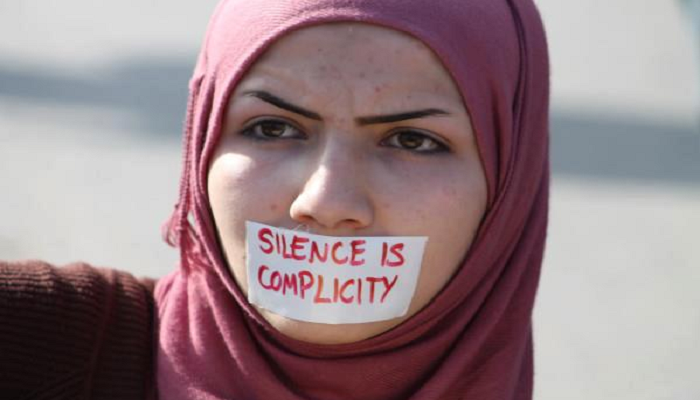As women the world over suffer physical and emotional abuse in silent, local advocacy groups are using the 16 Days of Activism against Gender-Based Violence to create awareness about the reasons why women choose to remain in abusive relationships. Forming part of an international campaign, the 16 Days of Activism falls between November 25, the International Day for the Elimination of Violence against Women and December 10, Human Rights Day. The initiative is directed toward ending violence that is perpetrated against women and girls around the world.
The international campaign originated from the first Women’s Global Leadership Institute and was coordinated by the Centre for Women’s Global Leadership in 1991.
One organisation that is working to educate trapped and abused women about options available to them is the Philisa Abafazi Bethu Women and Children’s Project South Africa, which was founded by community activist, Lucinda Evans.
Speaking to VOC’s Breakfast Beat, Evans explains that while the 16 Days of Activism has had a positive impact within communities, many women within townships and the Cape Flats do not have access to information that would assist in their protection and their children.
She says that the 2016 campaign is centred around the theme ‘16 reasons why I stayed’, which will unpack reasons why abused women remain in violent relationships.
Abused women remain in violent relationships due to financial constraints or religious and cultural beliefs that prohibit women from leaving their marriages.
“Like some say on the Cape Flats, ‘you made your bed, now you may lay in it’, but nobody knows that there are thorns in the bed, there is no mattress on the bed and springs are protruding your body,” she elaborated.
She notes that in many cases of domestic abuse, perpetrators emotionally isolate victims, feeding them the idea that no one cares enough to support them.
“In domestic violence situations, people think the physical violence is the [worse form of abuse], but it’s not. It is the emotional and psychological abuse, as well as the systematic breakdown of a woman, where she feels that she is a ‘nothing’.”
Given the extent of abuse that many victims face, Evans says perpetrators of abuse ultimately seek power over the victim, infringing on their sense of dignity and quality of life.
While shelters have acted as life-saving safe-havens for women of domestic abuse, Evens adds that women are fearful of approaching such centres due to the stigma associated with them.
“Women [question] what their lives are going to become in a shelter: ‘I am now a shelter woman’,” she adds.
As an organisation, Philisa Abafazi Bethu Women and Children’s Project SA throughout 2016 has adopted the approach, women’s lives matter.
Through the approach, the organization has educated women about their rights and how they are able to safely leave abusive relationships.
For this reason, the organisation has adopted a 365-day slogan advocating for the protection of women
“Many women, not knowing their rights, sign their rights away, they agree to things since they don’t know.”
With regards to the emotional challengers that children caught within abusive homes experience, Evens says that abusive parental structures impacts greatly on the development of children.
She says that as a result of abusive homes, children completely withdraw, become overtly aggressive, or lay prey to self-destruction, where they seek a sense of belonging and a safe-haven.
A victim of domestic abuse herself, Claudia Burger, who is the director of, Activists Networking against the Exploitation of Children (ANEX), says that her personal experience prompted her to become an advocate for other women, as well as children who suffer similar experiences.
“Ultimately, we are born to be in relationships and your brain develops in connection with others, so part of the reasons women stay is because they have not had attachments with men, so they look for attachment for the rest of your life,” she explained.
Primarily a children’s rights organisation, ANEX also works to create awareness around the exploitation of women and young boys who have been trafficked.
Burger says that many women who are trafficked have experienced abusive relationships, either before being trafficked or while they were trafficked.
ANEX is hoping to conduct a campaign on the N1, between Paarl and Beaufort West, in the last week of the 16 Days of Activism, in a campaign titled ‘Sit Jou Voet Neer’ [put your foot down].
“People tell you why don’t you leave, but you are the one that knows what happens at night when you give in because you want to keep the peace and day-by-day pieces of you dies inside,” she noted.
The Philisa Abafazi Bethu is inviting both women and men to share their stories and to right a note on Instagram citing why they believe that victims remain within abusive relationships and to share it with Philisa Abafazi Bethu’s page, beginning on the November 24, 2016.
VOC






 WhatsApp us
WhatsApp us 

